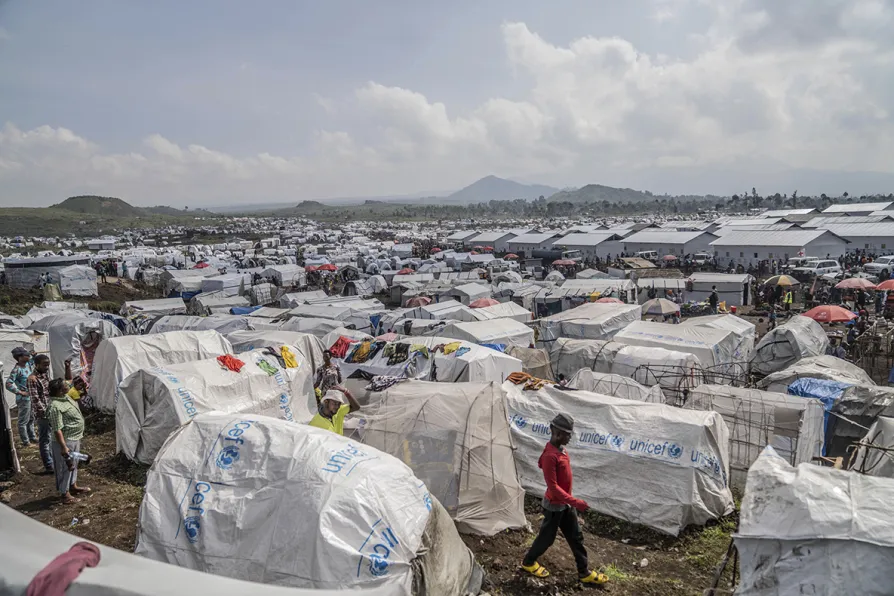
 People displaced by the ongoing fighting between Congolese forces and M23 rebels gather in a camp on the outskirts of Goma, Democratic Republic of Congo, March 13, 2024
People displaced by the ongoing fighting between Congolese forces and M23 rebels gather in a camp on the outskirts of Goma, Democratic Republic of Congo, March 13, 2024
UP TO 4,000 Rwandan government forces are deployed in neighbouring eastern Congo operating alongside the M23 rebel group, UN experts said in a new 293-page report published on Wednesday.
The report to the UN security council called the estimate of Rwandan troops “conservative,” said their “systematic support and presence” supporting M23 in its territorial conquest is a sanctionable act, and that their deployment is a violation of Congo’s sovereignty and territorial integrity.
The Rwandan forces’ “de facto control and direction over M23 operations also renders Rwanda liable for the actions of M23,” the report said.
Eastern Congo has struggled with armed violence as more than 120 groups fight for power, land and valuable mineral resources, while others try to defend their communities. Some armed groups have been accused of mass killings.
Congo’s President Felix Tshisekedi, along with UN experts, have accused Rwanda of giving military backing to M23.
Rwanda denies the claim, but in February it effectively admitted that it has troops and missile systems in eastern Congo to safeguard its security, pointing to a build up of Congolese forces near the border.
At the root of the current crisis is the 1994 Rwanda genocide. The carnage began when a plane carrying Rwandan President Juvenal Habyarimana — like most Rwandans, an ethnic Hutu — was shot down, killing the leader.
The country’s minority Tutsis were blamed, and bands of Hutu extremists began killing them with support from Rwanda’s army, police and militias.
Rwandan ambassador Ernest Rwamucyo told the security council on Monday that Congo and the international community have failed to ensure the protection of Congolese citizens, especially Congolese Tutsis, who he claimed “are being ethnically cleansed by armed groups.”
He reiterated that the FDLR rebel group — which he said is supported by Congo’s highest authorities and has vowed to cause regime change in Rwanda — remains “a threat to Rwanda and the Great Lakes region.”
The panel of experts said that when their report was being drafted in April, the Rwandan troops in Congo were deployed in three regions of eastern North Kivu — Nyiragongo, Rutshuru and Masisi.
The top UN special envoy for Congo, Bintou Keita, told the council earlier this week that the violence in the region has reached “alarming levels” and risks provoking a wider regional conflict.
The panel of experts agreed, saying: “The rapidly escalating M23 crisis carried the risk of triggering a wider regional conflict.”
A two-week humanitarian truce began last Friday in eastern Congo, but there has been no indication the violence has stopped.














